China clashes reignite as former leader Jiang Zemin dies, aged 96
A new wave of clashes broke out in China amid the death of former Communist leader Jiang Zemin, who rose to power after Tiananmen Square crackdown.
World
Don't miss out on the headlines from World. Followed categories will be added to My News.
Clashes broke out between police and protesters in a southern Chinese city, part of a wave of Covid lockdown-sparked demonstrations across the country that have morphed into demands for political freedoms.
China’s top security body warned that authorities would “crack down” following the protests, which are the most widespread since pro-democracy rallies in 1989 that were crushed with deadly force.
New clashes broke out in China’s southern city of Guangzhou into Wednesday morning local time, according to witnesses and social media footage verified by AFP.
Security personnel in hazmat suits formed ranks shoulder-to-shoulder, taking cover under see-through riot shields, to make their way down a street in the southern city’s Haizhu district as glass smashed around them, videos posted on social media showed.
In the footage people could be heard screaming and shouting, with orange and blue barricades strewn across the ground.
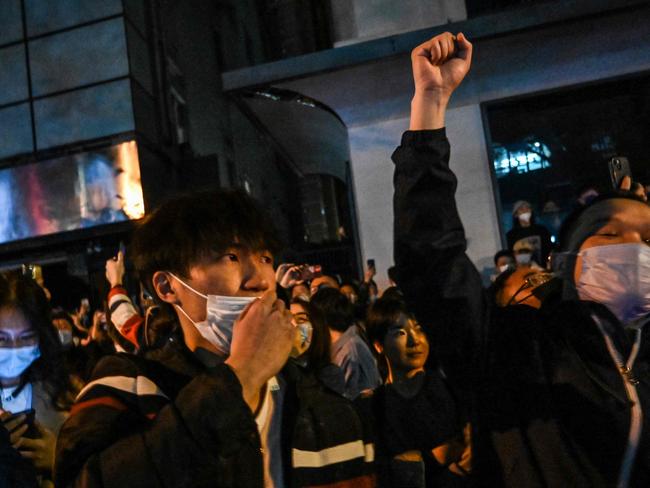
People are seen throwing objects at police, and later nearly a dozen men are filmed being taken away with their hands bound with cable ties.
Around 100 police officers converged on Houjiao village in Haizhu district and arrest at least three men during the new clashes.
Some students at Guangzhou’s universities said they were forced out of their dormitories overnight Wednesday, according to social media posts, as a growing number of universities nationwide ordered students home in the wake of campus demonstrations.
Multiple Guangzhou districts lifted restrictions on some or all locked-down neighbourhoods Wednesday afternoon, according to government announcements.
FORMER CHINESE LEADER DIES
News of the death of former Chinese leader Jiang Zemin — who came to power just after Tiananmen — saw state media emphasise his role in that crackdown.
“During the serious political turmoil in China in the spring and summer of 1989, Comrade Jiang Zemin supported and implemented the correct decision of the Party Central Committee to oppose unrest,” state broadcaster CCTV said.
Some internet users used Jiang’s death to juxtapose the more liberal 1990s with rule under Xi, China’s most hard line ruler in decades.
“The Jiang era, while not the most prosperous era, was a more tolerant one,” one Weibo user wrote.
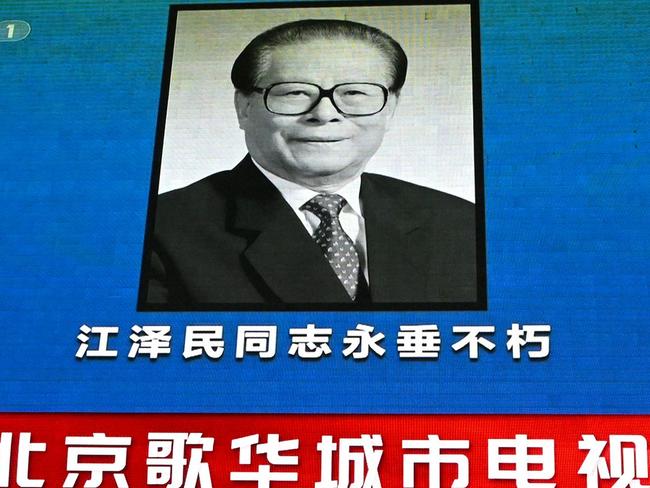
Signalling its zero-tolerance approach to the protests, China’s top security body on Tuesday called for a “crackdown” on what it described as “hostile forces”.
The body — which oversees all domestic law enforcement — also agreed at a meeting that it was time to “crack down on illegal criminal acts that disrupt social order” as well as “safeguard overall social stability”.
The warning came after a heavy police presence across Beijing and Shanghai on Tuesday appeared to have quelled protests in those cities.
– ‘Give me liberty’ –
Some rallies did go ahead elsewhere on Monday and Tuesday, however. At Hong Kong’s oldest university, over a dozen people led the crowd Tuesday in chanting slogans such as “give me liberty or give me death”.
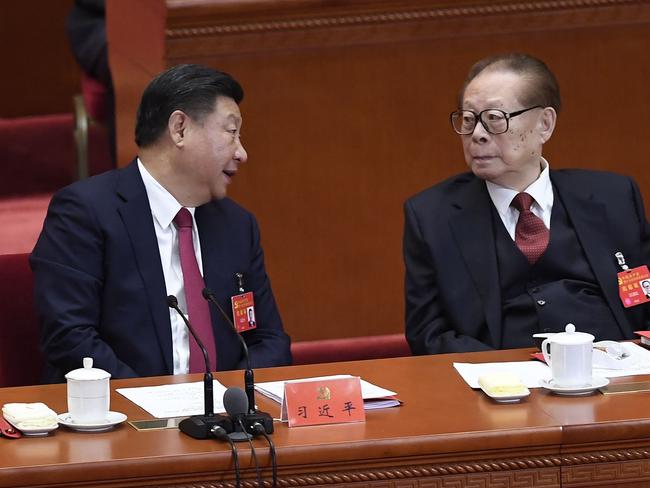
“We are not foreign forces, we are Chinese citizens. China should have different voices,” one woman shouted, while another held a placard mourning victims of the Urumqi fire.
In response, the semi-autonomous city’s security chief warned Wednesday that protesters may be falling foul of the territory’s national security law, imposed in 2020 by Beijing.
In Hangzhou, just over 170 kilometres (105 miles) southwest of Shanghai, there was heavy security and sporadic protests in the city’s downtown on Monday night.
One witness told AFP that “maybe 200” policemen and security personnel had surrounded the protesters, before forcing a number of young women into a van.
The latest unrest has drawn global attention, with solidarity protests springing up from Melbourne to Washington.
And while China’s leaders are committed to zero-Covid, there have been some signs that central authorities may be seeking a path out of the rigid policy.
China’s National Health Commission announced Tuesday a renewed effort to expand low vaccination rates among the elderly — long seen as a key obstacle to relaxing the measures.
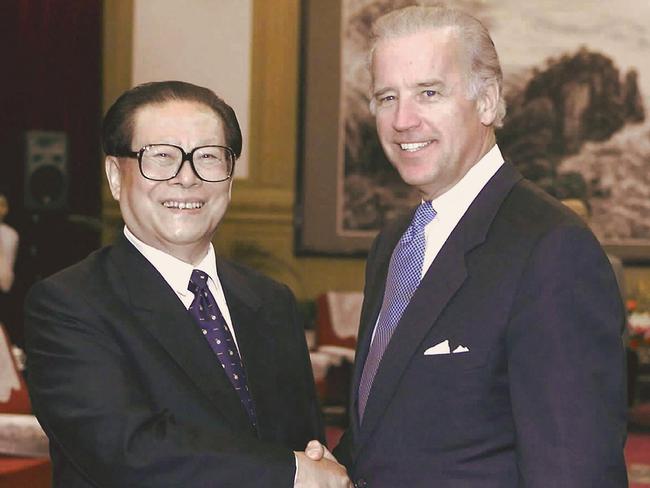
INCREDIBLE MOMENT WOMAN FACES RIOT COPS
A defiant Chinese woman has been dubbed the new “Tank Lady” after she faced down riot cops during a “White Paper” revolution protest.
Footage shows the courageous woman, who has not been identified, standing still as police surround her and steal her phone before beating her after bravely refusing to budge when Covid enforcers ordered her to stop filming.
However, it’s not clear what then happened to the woman as another enforcer forces the cameraman to stop recording.
WOW!
— Yashar Ali 😠یاشار (@yashar) November 28, 2022
Watch this brave woman stand strong and continue to film the abuses of Chinese government security forces!
She then gets beaten herself!
While we support the people of Iran, we must also support the brave people of China as they take on the totalitarian CCP! pic.twitter.com/AmCXbdD11t
The incredible footage is reminiscent of the “Tank Man” who stood in front of a row of military vehicles to stop them from moving through Tiananmen Square during the massacre.
An image of the man — who has never been identified — showed him carrying a bag blocking the path of a tank which has become the defining image of the democracy movement in China.
The video of the woman was shared by Yashar Ali, a Huffington Post contributor, who lauded the woman for her bravery.
“Watch this brave woman stand strong and continue to film the abuses of Chinese government security forces!,” he tweeted.
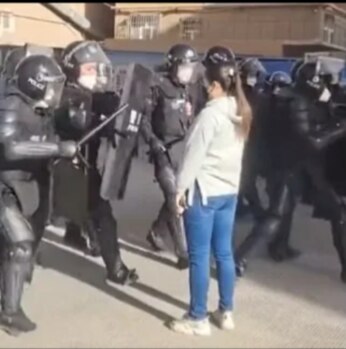
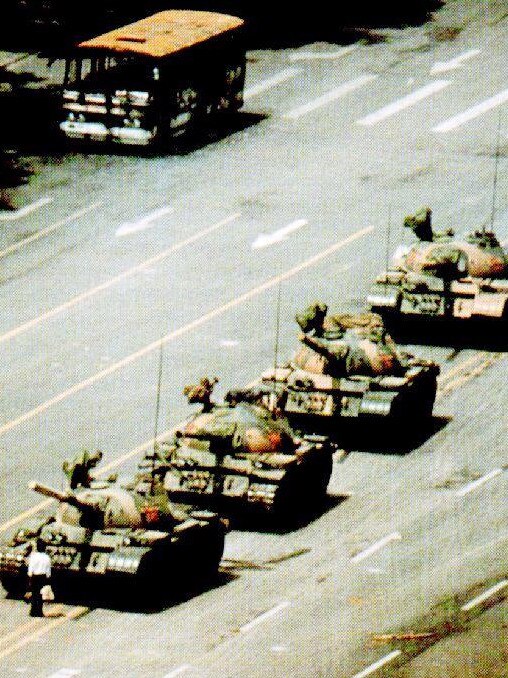
“She then gets beaten herself!
“While we support the people of Iran, we must also support the brave people of China as they take on the totalitarian CCP!.”
It comes as China deploys an army of riot cops to crush protests as fury erupts over the deaths of 10 people in a tower block blaze.
Many protesters waved blank sheets of paper in the air in a symbolic protest against censorship — with some now referring to the demonstrations as the “white paper revolution”.
CHINA’S GREAT WALL OF PORN SILENCES PROTEST COVERAGE
Chinese social media sites have been inundated with sexually explicit content in a move seen as an attempt to slow the spread of protests against Covid lockdowns and Chairman Xi Jinping.
Major websites in China are reportedly returning search results of porn, ads for escorts, and gambling in the cities where mass protests are raging across the country.
Twitter account “Air-Moving Device” posted charts in Mandarin said to a significant uptick in spam tweets in Beijing, Shanghai and other cities “drowning out legitimate search results”.
Stanford internet Observatory director Alex Stamos tweeted that the results showed government interference and that his team was analysing how widespread the Twitter takeover was.
Thread: Search for Beijing/Shanghai/other cities in Chinese on Twitter and you'll mostly see ads for escorts/porn/gambling, drowning out legitimate search results.
— Air-Moving Device (@AirMovingDevice) November 28, 2022
Data analysis in this thread suggests that there has been a *significant* uptick in these spam tweets. pic.twitter.com/Ao46g2ILzf
“Some good initial data that points to this being an intentional attack to throw up informational chaff and reduce external visibility into protests in China,” he said.
The great wall of porn began flooding social media sites late Sunday local time and continued into Monday.
“Fifty per cent porn, 50 per cent protests,” a US government contractor and China expert told The Washington Post on the condition of anonymity. “Once I got 3 to 4 scrolls into the feed” to see posts from earlier in the day, it was “all porn.”

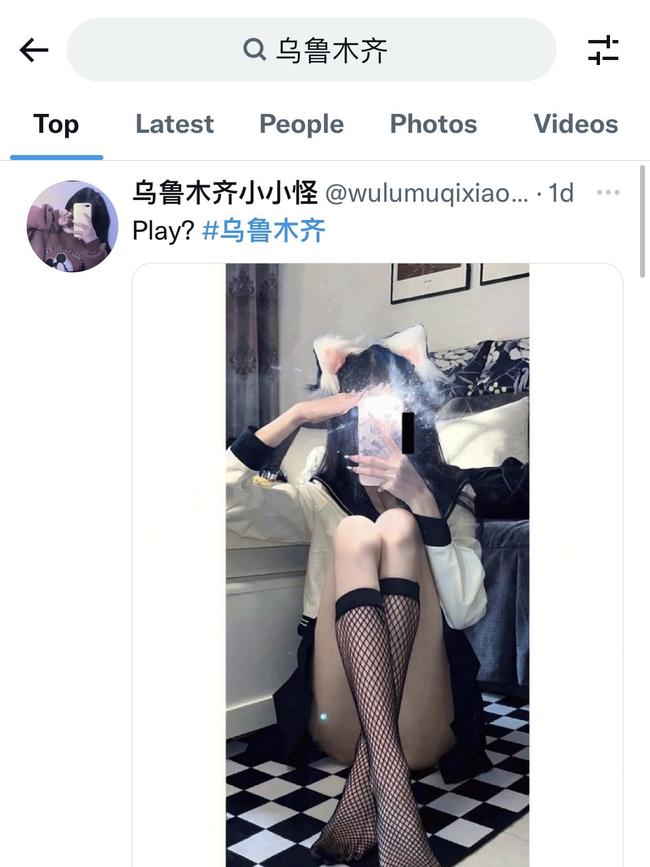
The initial analysis by Air-Moving Device found the “vast majority”, about 95 per cent, came from spam accounts tweeting “at a high, steady rate throughout the day, suggesting automation”.
Twitter user Mengyu Dong shared images of some of the advertisements for prostitutes, which she said was interfering with Chinese people seeking information on the protests.
“Some of these acts have been dormant for years, only to become active yesterday after protests broke out in China,” she said.

One account, @amyyoung0425, joined Twitter in 2015 but all of its 2000 tweets were made in a 15-hour period during the protests. Another, @ElvaZechariah, joined in March and only sent four tweets before suddenly posting 3,000 “NSFW” tweets in one day.
“There are many accounts like this,” she said. “Sadly if a Chinese person decides to come to Twitter to find out what happened in China last night, these nsfw posts shared by bots are likely the first to show up in their search results.”
While the Chinese Communist Party’s purported porn army ran interference online, it’s security forces detained people to prevent more planned protests.
Authorities worked to stamp out widening dissent seeking political freedoms as more people took to the streets and university campuses for the first time since pro-democracy rallies in 1989 were crushed.
Widespread rallies are exceptionally rare, with authorities harshly clamping down on all opposition to the central government.
search the name of any major 🇨🇳city in Chinese: 北京 上海 å—京 郑州 å…°å·ž etc and you’ll see thousands of nsfw escort ads. While similar ads exist for years, they weren’t being shared with the same frequency as seen in the last 24h since mass protests broke out. see also: https://t.co/xJzYEO1jHf
— Mengyu Dong (@dong_mengyu) November 27, 2022
Spreading through social media, the protests have been fuelled by frustration at the central government’s virus policy, under which authorities impose snap lockdowns, lengthy quarantines and mass testing campaigns over just a handful of cases.
Beijing accused “forces with ulterior motives” for linking Covid to the deadly apartment fire that sparked the protests.
State censors appeared to have largely cleaned Chinese social media of any news about the rallies by Monday.
The search terms “Liangma River” and “Urumqi Road”, where protests erupted, had been scrubbed of any references to the rallies on the Twitter-like Weibo platform.
REPORTER ARRESTED IN CHINA
The BBC says one of its journalists in China has been arrested and beaten by police while covering protests against the country’s zero-Covid policy.
Hundreds of people took to the streets in China’s major cities on Sunday in a rare outpouring of public anger against the state.
“The BBC is extremely concerned about the treatment of our journalist Ed Lawrence, who was arrested and handcuffed while covering the protests in Shanghai,” the broadcaster said in a statement.
Lawrence, working in the country as an accredited journalist, was detained for several hours, during which time he was beaten and kicked by police, according to the BBC. He was later released.
“It is very worrying that one of our journalists was attacked in this way while carrying out his duties,” the statement said.
“We have had no official explanation or apology from the Chinese authorities, beyond a claim by the officials who later released him that they had arrested him for his own good in case he caught Covid from the crowd,” the statement added.
“We do not consider this a credible explanation.”
‘XI JINPING, STEP DOWN’
Mass protests have erupted in China with people chanting “Xi Jinping, step down” in a rare outpouring of public anger against the state.
China’s hard line Covid strategy is stoking public frustration, with many growing weary of snap lockdowns, lengthy quarantines and mass testing campaigns.
Police clashed with groups of protesters in central Shanghai on Sunday local time, AFP reported, as officers tried to move people away from the site of an earlier demonstration.
A deadly fire on Thursday in Urumqi, the capital of northwest China’s Xinjiang region, became a fresh catalyst for public anger after residents, including children, reportedly died because their building was sealed in a Covid lockdown, which allegedly also hampered rescue efforts. Authorities deny the claims.
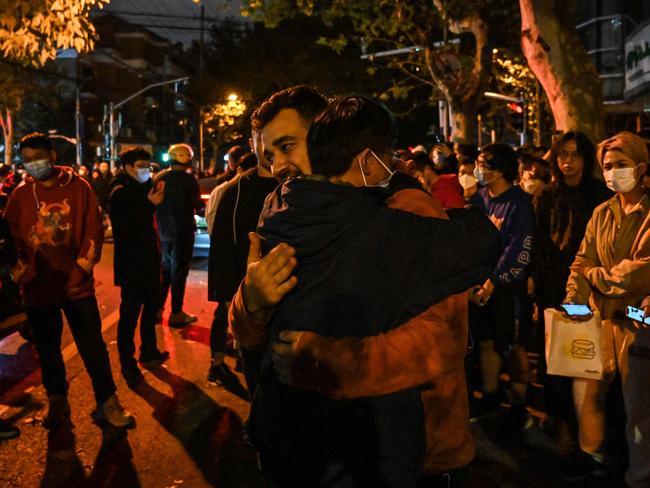
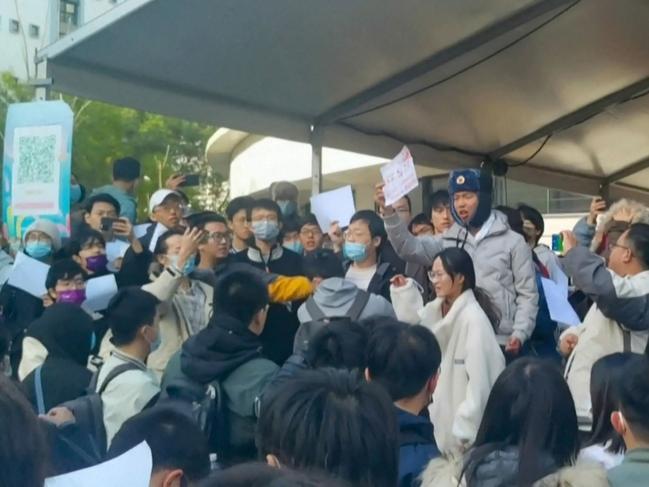
On Sunday night, around 400 people gathered on the banks of a river in the capital Beijing for several hours, with some shouting: “We are all Xinjiang people! Go Chinese people!”
AFP reporters at the scene described the crowd singing the national anthem and listening to speeches, while on the other side of the canal bank, a line of police cars waited.
In the central megacity of Wuhan, where the coronavirus first emerged, multiple live streams that were quickly censored showed crowds walking through the streets cheering and filming on their phones.
And in downtown Shanghai, AFP saw police clashing with groups of protesters, as officers tried to move people away from the site of an earlier demonstration on Wulumuqi street – named after the Mandarin for Urumqi.
Crowds that had gathered overnight – some of whom chanted “Xi Jinping, step down! CCP, step down!” – were dispersed by morning.
But in the afternoon, hundreds gathered in the same area to hold what appeared to be a silent protest, an eyewitness told AFP.
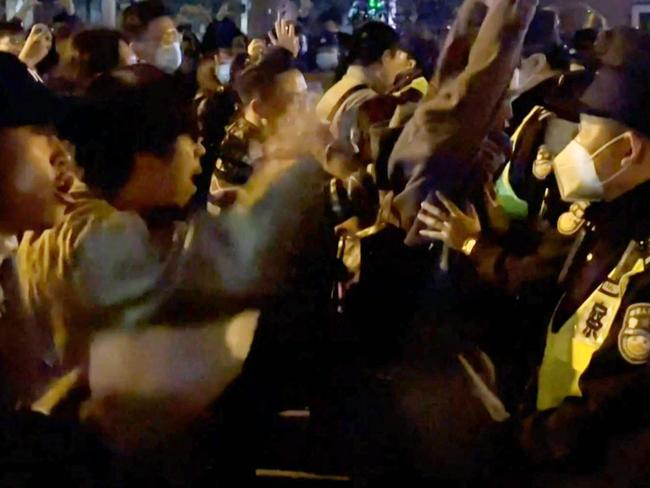
Social media videos from the area that appeared to be taken in the late afternoon showed the crowd chanting.
Footage from several different angles showed a man holding a bouquet of yellow flowers being dragged into a police car at one intersection as onlookers shouted.
By evening, dozens of policemen in yellow high-vis jackets formed a thick line, cordoning off the streets where the protests had taken place.
AFP saw multiple people arrested as officers told people to leave the area. A foreigner who wished to remain anonymous told AFP he had seen a standoff as police directed a crowd away from Wulumuqi street.
“The police appeared to be looking for individuals suspected of leading the protests,” he said.
“The atmosphere was very tense, but there was also excitement and energy … Protesters directed their anger at the police and the party, using the ‘step down!’ refrain of the last few days.”
Footage of protests allegedly taken in major cities Guangzhou and Chengdu were also spreading online Sunday night, but AFP was unable to independently verify them.
A live stream on Instagram showed a wall of policemen closing in on a group of people from both sides of the street, forcing them to the pavements.
A foreigner who wished to remain anonymous told AFP he had seen a standoff as police directed a crowd away from Wulumuqi street.
“The police appeared to be looking for individuals suspected of leading the protests,” he said.
“The atmosphere was very tense, but there was also excitement and energy … Protesters directed their anger at the police and the party, using the ‘step down!’ refrain of the last few days.”
On Sunday night a protest was taking place in central Beijing, an AFP reporter at the scene said.
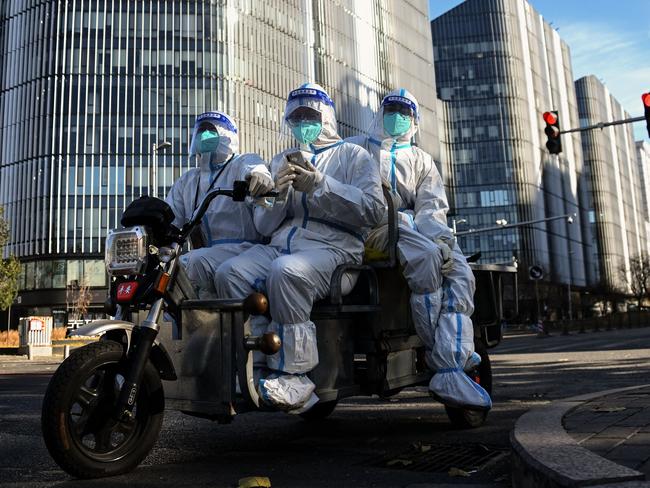
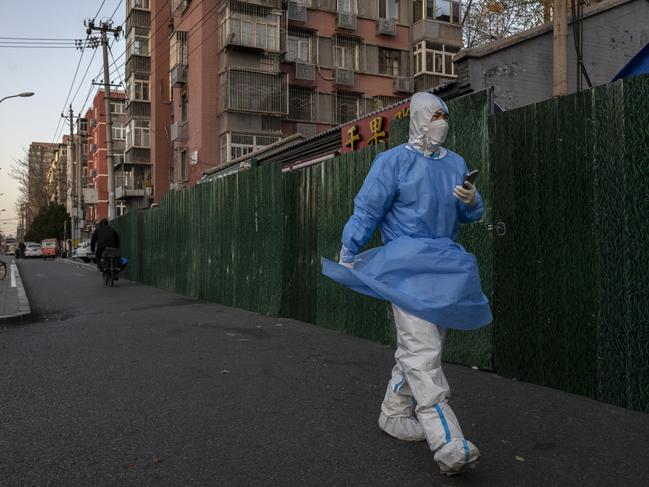
Earlier in the day, hundreds also rallied at Beijing’s elite Tsinghua University to protest against lockdowns, one witness who wished to remain anonymous told AFP.
“At 11.30am students started holding up signs at the entrance of the canteen, then more and more people joined,” they said, estimating there were 200-300 people present, some holding blank bits of paper.
Participants sang the national anthem and “the Internationale” — a standard of the international communist movement — and chanted “freedom will prevail” and “no to lockdowns, we want freedom”, they said.
A video that appeared to be taken in the same location showed students shouting, “Democracy and the rule of law, freedom of expression”, and was quickly taken down.
Other vigils took place overnight at universities across China, including one at Tsinghua’s neighbour Peking University, an undergraduate participant told AFP.
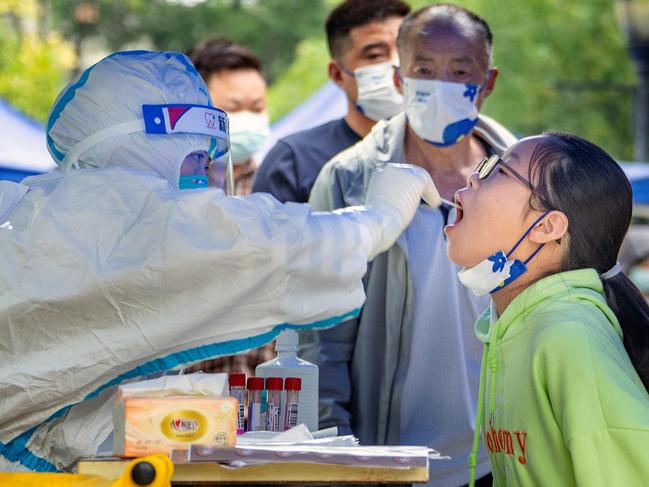
Speaking anonymously as well for fear of repercussions, he said some anti-Covid slogans had been daubed on a wall in the university.
“I heard people yelling: ‘No to Covid tests, yes to freedom!’,” he said, adding there were between 100 and 200 people there.
Videos on social media also showed a mass vigil at Nanjing Institute of Communications, with people holding lights and white sheets of paper.
Hashtags relating to the protest were censored on Weibo, and video platforms Duoyin and Kuaishou were scrubbed of footage.
Videos from Xi’an, Guangzhou and Wuhan showing similar small protests also spread on social media.
China reported 39,506 domestic Covid-19 cases Sunday, a record high but small compared to caseloads in the West at the height of the pandemic.
– with AFP



